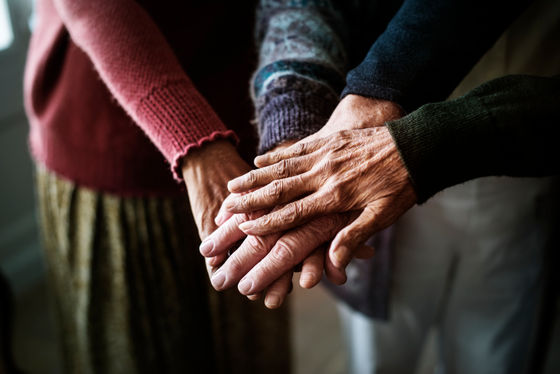What are the 'five points' for maintaining good physical and mental health over the years?

It is inevitable that physical strength and energy will decline due to aging, but there are some people who are young and healthy even if they get older, and some people suddenly become aging or become sick. I will. Ziggi Ivan Santini, a psychologist studying public health at the University of Southern Denmark, and others, based on the results of various studies published so far, 'actions to become elderly physically and mentally healthy' I have summarized it in 5 points.
Five activities that can protect your mental and physical health as you age
https://theconversation.com/five-activities-that-can-protect-your-mental-and-physical-health-as-you-age-133267
◆1: Learn new things
A 2016 study that surveyed 3635 Americans over the age of 50 for up to 12 years found that those who read books often benefited from 23 months of life compared to those who didn't. A 2013 study of 648 people with dementia said, 'Bilingual people who learn two languages are four and a half years more demented than people who speak only one word.' It was late.'
In addition, it is known that people who have become a habit of lifelong learning are also at low risk of lifestyle-related diseases such as heart disease and obesity (PDF file) .
Regarding this, Santini et al. “Activities such as attending art and music classrooms improve communication between various areas of the brain, which leads to better brain health. It also improves mental resilience. , Will also improve your ability to adapt under stressful conditions.'

◆2: Participate in club activities and play analog games with someone
According to the results of several studies investigating the health effects of group sports such as handball and football , these sports have the effect of lowering blood pressure and fat mass.
Club activities other than sports also have health benefits. For example, in a 2015 study in which 84 men and women with an average age of 60 who belonged to the choir participated, singing in the choir had psychological benefits such as increased happiness and reduced loneliness. It has been confirmed that there are physical benefits such as improved lung health. In addition, it has been confirmed that participating in the knitting and painting community has a relaxing effect and an effect of promoting the secretion of oxytocin , which is also called a 'happy hormone'.
In addition, in a survey of 1091 Scottish residents born in 1936 for 68 years, a person who frequently plays analog games said, ``The cognitive function such as memory and thinking ability is high, There is little decrease in
Playing a board game prevents cognitive decline-GIGAZINE

◆3: Engage in volunteer activities
There is a saying in the English-speaking world that ' It's better to give than to receive ', but as evidenced by such old wisdom, it is not healthy to do something for someone free of charge. Scientifically proven to have benefits.
According to a 2020 study involving 12,998 Americans over the age of 50, people who volunteer for more than 100 hours per year are at greater risk of mortality and physical disability than those who are not. It was significantly lower.
Also, a 2018 study led by Santini found that weekly volunteers were twice as likely to have better mental health than non-volunteer volunteers. I will.

◆ 4: Get involved in the community
According to a 2016 study involving 9119 British residents born in 1958, frequent participation in social activities at the age of 33 is associated with high cognitive function at the age of 50. I know that.
'The ability to contribute to your community is the key to maintaining mental health,' says Santini and colleagues, 'because humans need both a connection to the community and a role to play in it. 'One way to meet this is to engage the community through political and civil society activities.'

◆5: Conducting religious and spiritual activities
It is said that people who are sick overseas also tend to try to deal with the disease according to their religious beliefs, as in Japan, 'God's request when suffering'. Although God's benefit cannot be scientifically proven, a total of more than 3300 articles and papers published between 1872 and 2010 were searched to quantitatively evaluate the effects of religious and spiritual activities on health. A 2012 study showed that 'faith and spiritual activity tend to improve the prognosis of people who are treated or treated for illness.'
'A huge amount of research has confirmed that religious and spiritual activities have beneficial effects on mental health. These mental health benefits include improved immune function and reduced stress responses. It also has a positive impact on physical health and reduces the risk of illness.'

Related Posts:
in Science, Posted by log1l_ks







